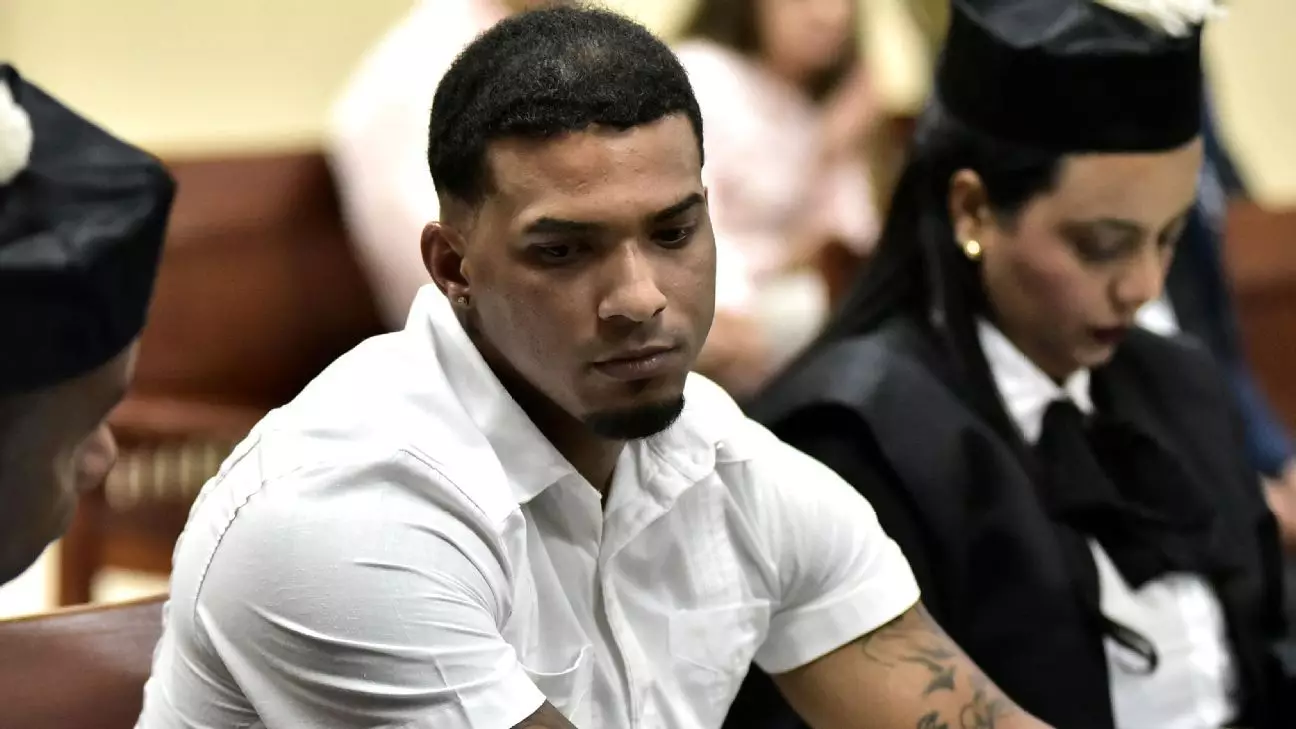In a harrowing turn of events, the case of suspended Tampa Bay Rays player Wander Franco has thrust the world of professional sports into a troubling spotlight. With allegations of sexual abuse involving a minor, the implications of his actions resonate far beyond the baseball diamond. As prosecutors request a five-year prison sentence, the gravity of the situation raises questions not just about Franco’s future, but about the responsibility that comes with immense power and influence.
Details of the Case Unfold
On Monday, Dominican prosecutors presented compelling evidence in court to substantiate the charges against Franco. They allege he had a four-month relationship with a 14-year-old girl and funneled substantial amounts of money to her mother, aiming to secure consent for this inappropriate relationship. The staggering total of $103,500 allegedly found during police raids highlights a chilling narrative of exploitation, wherein a prominent athlete might have wielded his financial clout to manipulate a vulnerable family.
Prosecutor José Martínez’s statement about the need for a five-year prison sentence underscores the stark realities of such situations, emphasizing that the crime of sexual abuse cannot be tolerated. Furthermore, the prosecution’s request for a ten-year sentence for the girl’s mother, accused of facilitating the abuse, reveals a disturbing trend of parental betrayal. Such cases force society to confront uncomfortable truths about familial dynamics and accountability, inviting deeper scrutiny into the actions and motives of those who prioritize financial gains over the safety of their children.
The Defense and Its Challenges
Franco’s legal team is pushing back against these allegations, introducing ambiguity into the prosecution’s claims. They argue that the case lacks clarity regarding his role and intentions. Irina Ventura, one of his attorneys, posed a critical question about Franco’s actual involvement and complicity in the alleged acts. This defense strategy, while aiming at sowing doubt, also raises ethical considerations. In navigating legal defenses, the defense must be careful not to further victimize the already vulnerable parties involved.
However, dismissing such serious allegations as mere confusion could inadvertently undermine the painful experiences of victims caught in similar circumstances. As Franco’s defense grapples with these complexity-laden assertions, it becomes evident that in the court of public opinion, the conversation can quickly shift from legal merits to ethical imperatives.
The Cultural Implications
Franco’s situation echoes broader societal issues regarding the treatment of women and minors. The intersection of fame and power often creates a dangerous dynamic where consent can be manipulated. This case serves as a broader call to action for athletes and public figures to reflect on their roles and the implications of their actions. The fervent fan bases that idolize these athletes must also engage in critical discussions about accountability and respect, particularly in contexts where power imbalances exist.
In addition, the media portrayal of such cases plays a crucial role in shaping public perception. The narratives constructed around allegations can influence everything from legal outcomes to the lives of those involved, especially the victims. Therefore, it is vital for media outlets to pursue Journalistic integrity while covering sensitive subjects, ensuring they do not sensationalize or trivialize the seriousness of the allegations.
As the case continues to unfold, it stands as a stark reminder of the pressing need for dialogue surrounding consent, accountability, and the moral responsibilities of those in positions of power. The ramifications of Wander Franco’s alleged actions extend beyond his career; they challenge the integrity of a system that must better protect the most vulnerable.

